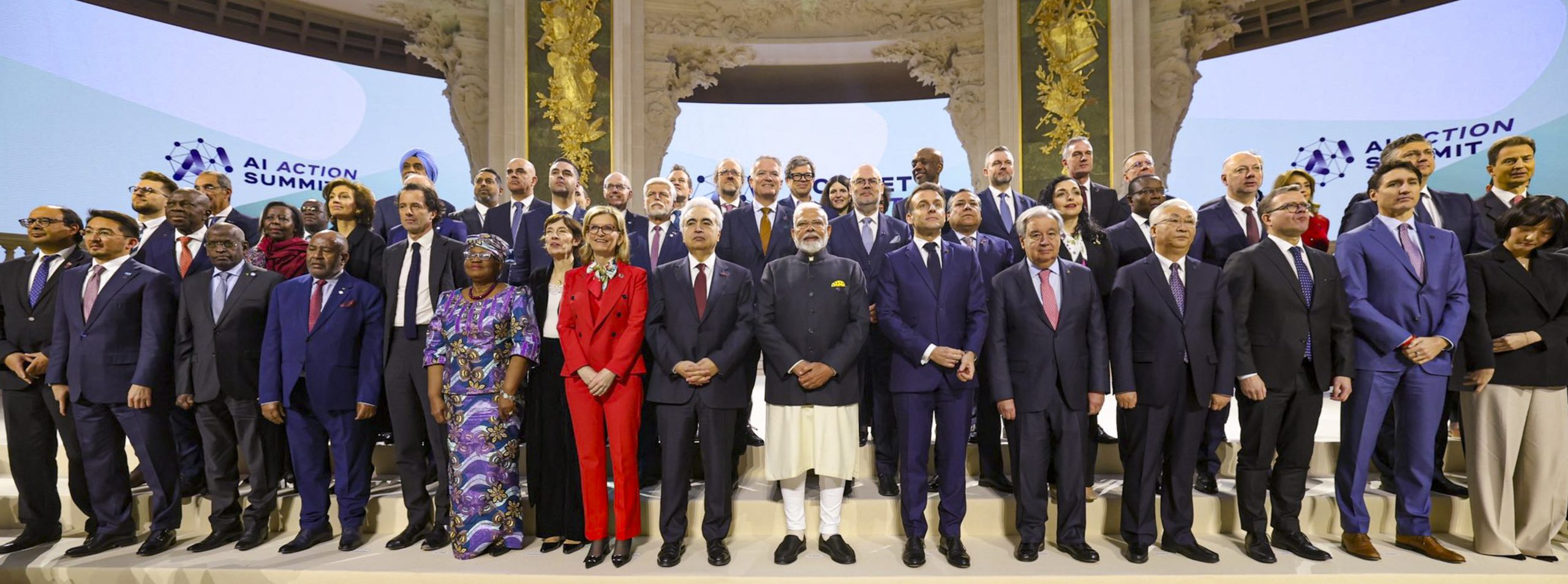PARIS, Feb 11: On Tuesday, Prime Minister Narendra Modi strongly advocated for collaborative efforts to create a global artificial intelligence (AI) framework that emphasizes open-source principles, fosters trust, transparency, and eliminates biases.
Co-chairing the AI Action Summit alongside French President Emmanuel Macron, Modi expressed that AI is influencing politics, economics, security, and society, essentially shaping humanity’s narrative in this century.
He also proposed hosting the next AI Action Summit in India, aligning with the decision made at the inaugural summit in France to establish the ‘AI Foundation’ and the ‘Council for Sustainable AI’.
“We need collective global efforts to develop governance and standards that reflect our shared values, mitigate risks, and build trust,” Modi remarked, emphasizing that governance should encompass not just managing risks and rivalries but also fostering innovation for the greater good.
“We must democratize technology and create user-centric applications. It is essential to tackle issues related to cybersecurity, misinformation, and deep fakes,” stated the Prime Minister.
Highlighting the importance of developing quality datasets devoid of biases, he stressed the need for open-source AI ecosystems that promote trust and transparency.
Modi noted that to be effective and beneficial, technology must be rooted in local ecosystems.
He began his speech by illustrating AI’s potential, remarking that it can simplify complex medical jargon and clearly explain medical prescriptions.
“If you upload your medical report to an AI app, it can translate it into straightforward language, devoid of any technical jargon. Conversely, if you request that same app to depict someone writing with their left hand, it will likely render a right-handed figure due to the dominance of training data.
“This illustrates that while AI holds immense positive potential, we must critically examine the inherent biases,” said Modi, urging for inclusive AI development, particularly for the Global South.
“We need to deeply contemplate and openly discuss both innovations and governance. Governance also entails guaranteeing access for all, especially in the global south, where capabilities often fall short, whether in computing power, talent, data, or financial resources,” Modi explained.
The Prime Minister further asserted that AI could transform millions of lives by enhancing health, education, agriculture, and more.
It could pave the way for easier and faster achievement of sustainable development goals. To accomplish this, we must pool resources and talent.
In addressing concerns about potential job losses due to AI, Modi reassured that history indicates work does not vanish with technology; instead, its nature evolves, leading to the creation of new job opportunities.
“AI is progressing at an unprecedented pace and being adopted even more rapidly. There exists a deep interdependence across borders. We must invest in skilling and reskilling our workforce for a future driven by AI,” Modi stated.
He highlighted India’s leadership in AI adoption and techno-legal approaches regarding data privacy.
“We are developing AI applications aimed at public welfare. India is eager to share its experience and expertise to ensure an inclusive and beneficial AI future for everyone,” Modi remarked.
In closing, Modi noted that the discussions during the summit illustrated a “unity of vision and purpose among stakeholders.”
Recognizing that the AI partnership is fundamentally global, he expressed, “To capitalize on the momentum generated by this Action Summit, India would be delighted to host the next gathering.”
“We must also ensure that the ‘Global Partnership for AI’ is genuinely inclusive of the Global South, taking into account its priorities, concerns, and needs,” Modi concluded. (Agencies)


Leave a Reply